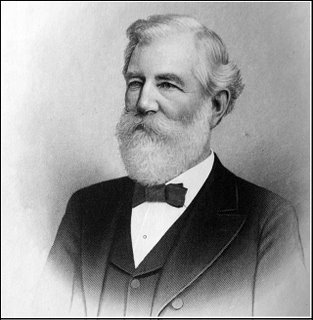171

Henry Clay Marchant, b. April 1, 1838, d. October 11, 1910
In the 1870s. Clay Marchant's vision for the social structure of the Woolen Mills Village began to take shape. That vision employed a two-pronged approach combining humanitarianism and practicality. His company started providing housing for his employees as well as for management. Mill records show him purchasing food and fuel by the boxcar and selling it to his employees at cost. A primitive form of health insurance was set into place. And in a gesture that was quite unusual, even in the present day, Marchant chose to live among his workers, in a house that was eventually owned by the mill itself.In an 1881 company report, Marchant made a telling statement regarding his attitude towards his workers?a statement that would set the tone for the mill village for decades to come:
"The property of a manufacturing company must ultimately rest on the efficiency and fidelity of its labor. It must be impaired by whatever impairs the comfort and morale of its operatives. It must be promoted by whatever promotes their self respect, elevates their character, and cultivates local attachments and the home feeling. Nor is it easy to estimate the pecuniary advantages of such a liberal policy as shall strengthen our hold on the entire body of employees, and more particularly on those whose value is apt to bring tempting offers from abroad."
Personal ethics formed the central core of Marchant's life and informed his company's policies as well. Prospective employees were assessed to ensure that they were "of good character." The people holding management positions had to exhibit exemplary character in addition to possessing the required strong work skills and leadership abilities. As a result, Woolen Mills employees developed a reputation in the greater Charlottesville community for responsibility and honesty, a fact that aided them when applying for credit from banks and store owners.
Labels: Henry Clay Marchant

0 Comments:
Post a Comment
<< Home